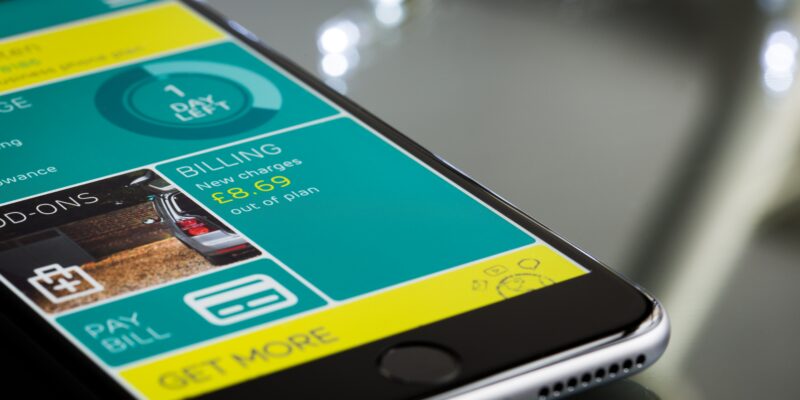
Our parents used to take time once a week to pay bills by check and balance their checkbook. With automatic bill pay, mobile bank accounts and cashless transactions, it seems easier to manage your finances, but how well do you know where your money is on any given day?
That’s where money management apps come in. These handy apps let you link all your accounts – bank accounts, credit cards, bills, investment accounts – to one tool, so you can keep track of your finances at all times.
And the best part? Most of these apps are free or low-cost. All it takes is a few clicks, and you can easily manage your money. Here is how.
Budgeting
The first step to taking control of your finances is knowing where your money is and where it’s going. Numerous financial advisors advise creating a budgeting plan so you can not only keep track of your money, but also achieve your goals. For example, are not you saving enough? Review your budget and see where you might be able to cut back to set aside more money.
However, creating a budget can be a tedious process if it were not for apps that do all the work for you. Do not know how to create a budget? Do not worry, apps like EveryDollar will assist you. They help you create a budget within 10 minutes that you can stick to.
You can set up and establish budget goals or have a budgeting app like YNAB (You Need a Budget) set them for you, tailored to your needs. The app not only shows you how much you are spending, but helps you make decisions throughout the month with proactive settings to ensure you are spending your money properly. The app claims that its users can save $600 in the first two months.
Link your accounts and allow your budgeting app to split your income into different spending “envelopes” like Goodbudget does. Our grandparents may have literally divided their money into envelopes. When the money was gone, it was gone. Goodbudget does the same thing electronically, making sure you spend your money correctly.
Track spending
Just as a business keeps a close eye on its expenses relative to its income, you should keep a close eye on your expenses relative to your income. Tracking what you spend your money on will help you determine if you are going over or under budget, and that goes hand-in-hand with budgeting.
Apps that let you track your spending, such as Simplifi from Quicken, automatically categorize your expenses without you having to keep and record receipts, and help you organize them and keep them in line with your budget.
Money management apps like Mint and Personal Capital can also track expenses, but go even further. These apps can help you track your budget, pay your bills, move funds between accounts, make sure your retirement goals are on track, see your net worth and, of course, make adjustments when you see red flags.
Everything is automated, so you can save yourself hours of organizing and tracking and just open your app on your smartphone day or night.
Pay off debts
If paying off debt is your top priority, the best debt apps will help you pay off your debt faster. Often, debt apps will show you different scenarios of how to use your money to pay off debt, such as paying off the debt with the highest interest (debt avalanche) or the one with the smallest balance (debt snowball).
Apps like Debt Manager can be set up to pay your credit card debt using the avalanche or snowball system. When a debt is paid off, the app automatically begins to roll over previous payments to the next debt on the list. The same goes for student loans with apps like ChangEd.
Other debt apps help you find extra money so you can pay off your debt faster. When you link your accounts to Qoins, Qoins rounds up your payments to the nearest dollar and applies the excess change to a debt, so you pay off a debt every time you make a purchase.
Save money
You know you should be putting money into a savings account, but you just can not get around to it. In this case, a money saving app can give you the boost you need.
Acorn, for example, works like Qoins, but for investing. Link your bank account, and every time you spend money, the app rounds up to the nearest dollar and transfers the balance into exchange-traded funds (ETFs) with as little as $5. These are not stocks that will make you rich, but “acorns” that will put you on the path to long-term growth.
Other apps like Digit and Empower automatically save money for you based on your goals and objectives, making sure you do not forget to save. Empower offers 0.25% APR on your savings, with no minimum balance requirement and instant access to your funds, while Digit reviews your spending and automatically puts some money aside – even daily – based on how much you have spent. This means that if you spend a lot, it automatically saves less, and vice versa, so there are no more excuses when you do not get around to saving.
Best money management apps
Here is a look at some of the best money management apps and how they compare, from the best apps for budgeting to the best apps for debt, from the best apps for tracking expenses to the best apps for freelancers, and from the best apps for saving to the best all-around money management apps.
The bottom line
Money management apps do the work for you – saving, paying bills, budgeting, tracking your money – so you can have a better overview of your finances. Using these automated tools can help you finally save, invest, get rid of your debt, and take full control of your finances and life.











